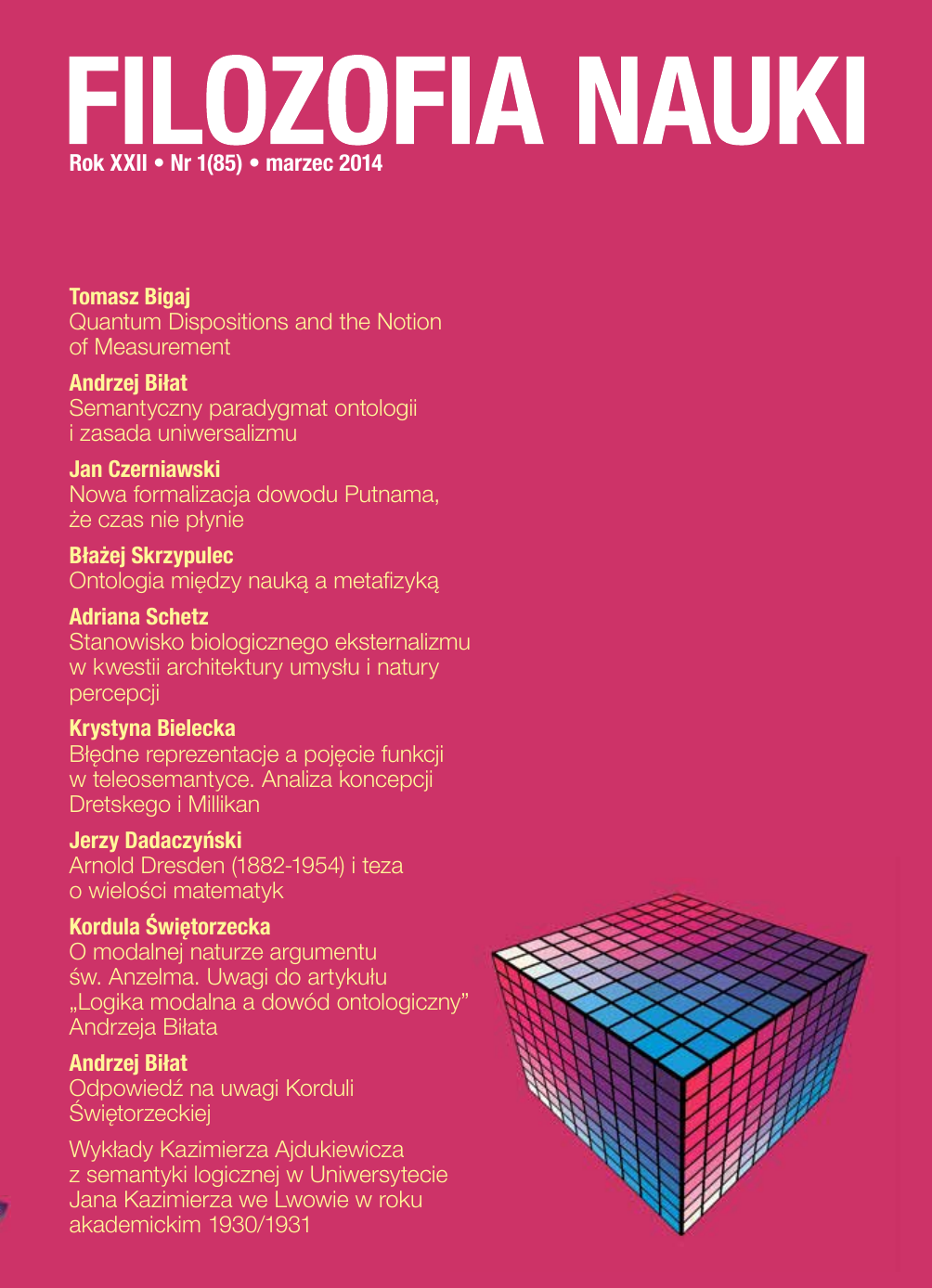Arnold Dresden (1882-1954) i teza o wieloci matematyk
Słowa kluczowe:
Arnold Dresden, plurality of mathematics, intuitionism, intuitionistic mathematics, applicability of mathematicsAbstrakt
The plurality of mathematics was recognized in the 1960s. In the 1920s two competing versions of mathematics were available: the classical and the intuitionistic. Their supporters rejected opponents' mathematics as such, so that the thesis of the plurality of mathematics could not be accepted. Arnold Dresden was the exception. He rejected the idea of evaluating mathematics with respect to truth or falsehood. Instead, Dresden assigns to mathematical theories (and whole mathematics) a partially temporal degree of gradable applicability. This allows the 'coexistence' of plurality of mathematics.Pobrania
Opublikowane
2014-03-01
Jak cytować
Dadaczyński, J. (2014). Arnold Dresden (1882-1954) i teza o wieloci matematyk. Filozofia Nauki, 22(1), 121–129. Pobrano z https://www.fn.uw.edu.pl/index.php/fn/article/view/749
Numer
Dział
Artykuły















 Filozofia Nauki | ISSN 1230-6894 | e-ISSN 2657-5868
Filozofia Nauki | ISSN 1230-6894 | e-ISSN 2657-5868